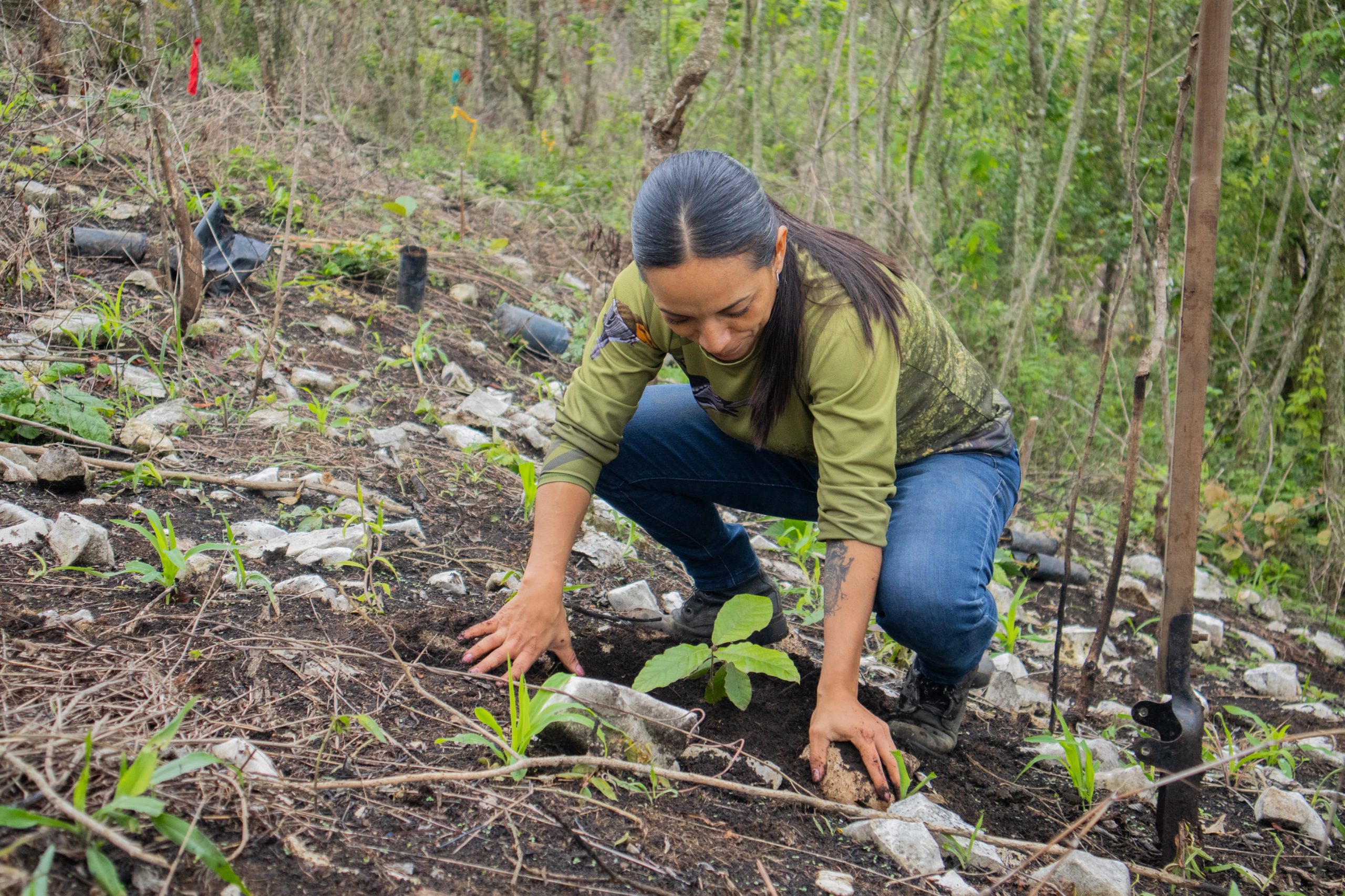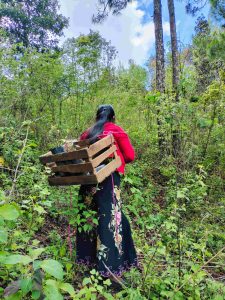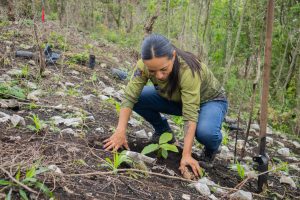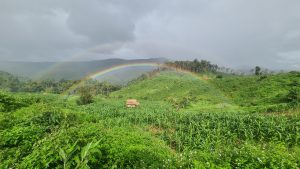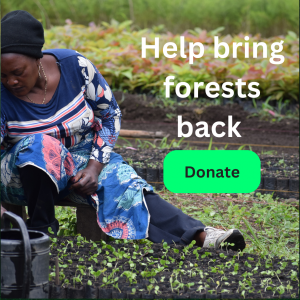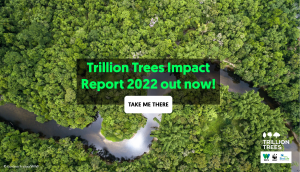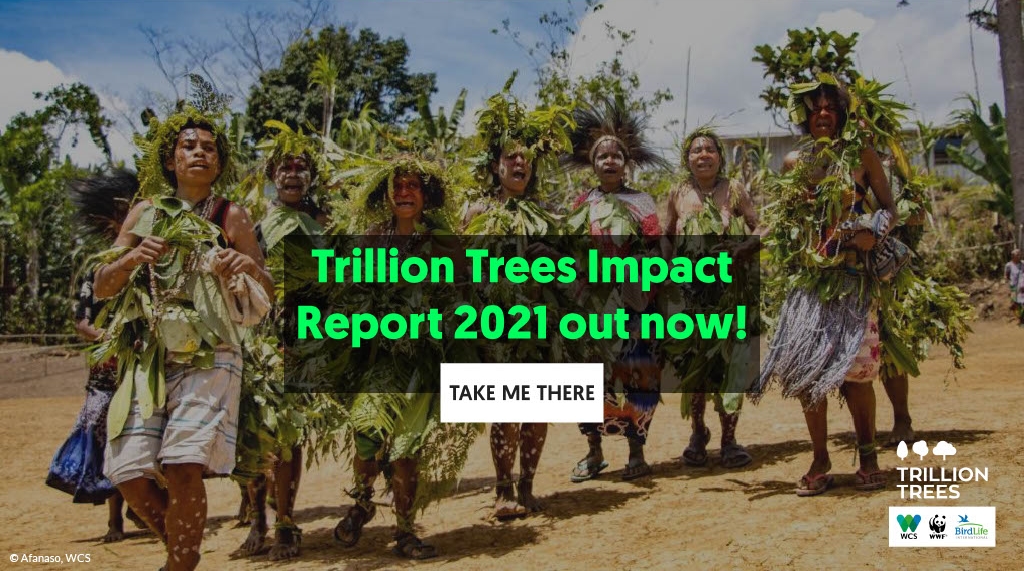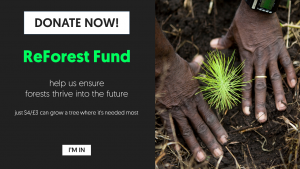I consider myself a mountain woman. Working in the mountains of the Altos Region of Chiapas, Mexico, I coordinate the Forest and Landscape Restoration Program at Pronatura Sur, where I lead our project in the Jovel Valley Basin with support from Trillion Trees. Our goal is to restore the forests that protect the rivers, springs, and hillsides of this region, places that are essential for local communities and wildlife that depend on them. Together with my team and the local people who live here, we plant native trees and work to bring degraded landscapes back to life, supporting biodiversity, cultural preservation, and local livelihoods.
When I was very young, I decided to study Natural and Agricultural Resources Engineering at the University of Guadalajara. There, I developed a keen interest in biological conservation and the restoration of forest ecosystems. My academic training was very practical, and through my work at Pronatura Sur in southern Mexico, in Chiapas and Oaxaca, I have been able to strengthen and deepen my passion for these issues.
The challenges and threats to the conservation of forest ecosystems are many. The projects I have worked on have helped me understand rural dynamics, how they connect to urban life, and how society relates to the use of natural resources. I have learned to appreciate the enormous natural capital we have and how we can design restoration and management strategies that respect and enhance it.
Learning about the bird populations that inhabit these landscapes has also shaped the conservation projects we carry out at Pronatura Sur. In fragmented and deforested areas, one of our main goals is to recover bird habitat. I have had the privilege of accompanying community monitoring groups who, through bird observation and monitoring, have gained a better understanding of their territory and developed skills to care for nature and diversify their livelihoods, such as through community birdwatching tourism.
In the Altos de Chiapas region, land use change and forest fragmentation are the main causes of biodiversity loss and the decline of ecosystem services. Here, we promote and support the recovery of riverbanks, pine and oak forests, remnants of cloud forest, springs, and ceremonial areas. In our Encinar-Moxviquil Nursery, we propagate around 30,000 native plants every year from more than ten tree species, and we aim to restore at least 200,000 hectares. We advise forest landowners on the best reforestation actions, helping them choose the right number of plants per species according to the characteristics of their plots and their needs.
During the rainy season, usually from June to September, we focus on delivering plants, supporting communities, and planting seedlings. We also collaborate with other organizations on local initiatives such as the Social Reforestation Campaign, which is now in its eighteenth year. This campaign continues to improve its methodology for measuring survival rates and contributes to improving the quality and quantity of water that flows to the aquifers and springs providing water to rural and urban communities. The rest of the year, we prepare to begin the next planting cycle: collecting and cleaning seeds, preparing substrate, planting, irrigating, and providing all the care needed to ensure the plants are healthy and vigorous when they go out into the field.
Monitoring the survival of the trees we plant is also part of our agenda. Although it requires significant effort to return to reforested sites to measure the number of trees that have survived, it is essential to understand the results of our restoration efforts. This activity has become a collaborative process with the local communities and landowners, strengthening our shared commitment and collaborative process.
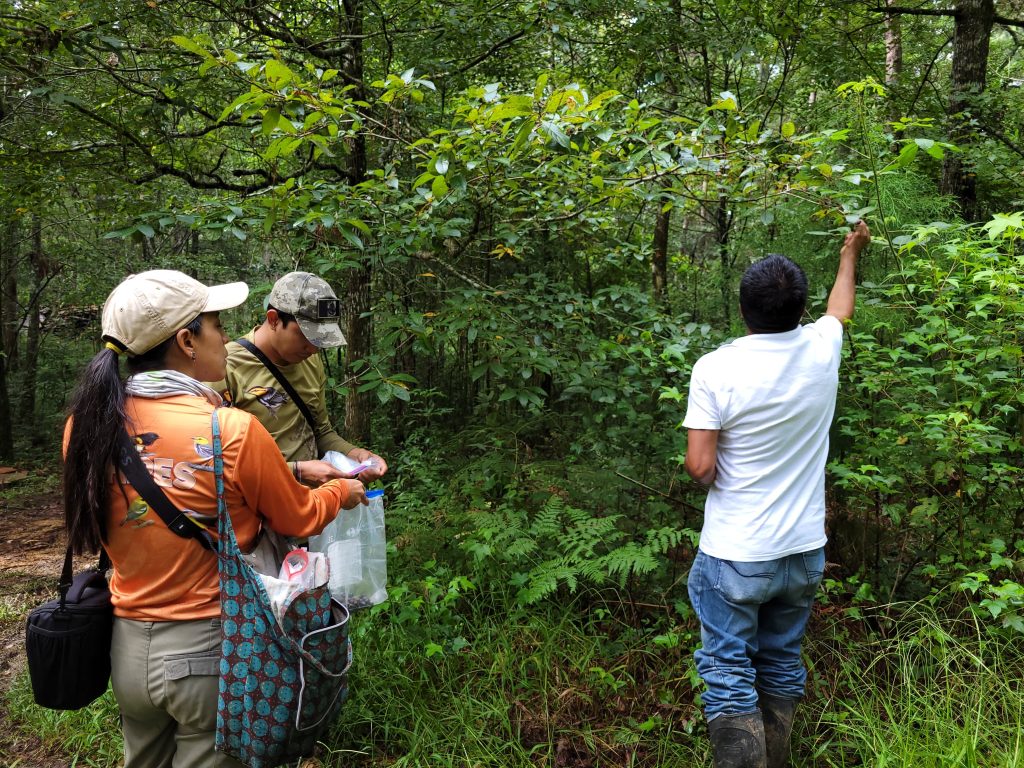
One of the biggest challenges we face is the intense drought during the dry season and the heavy frosts that follow, which stress young plants in the nursery and reduce survival in the field. Another challenge is the limited availability of seeds and recent variation in the germination rates of species that used to germinate easily. Notably, we attribute these changes to climate change. To adapt, we conduct continuous field trips to collect seeds in a timely manner and expand the diversity of species included in restoration actions. We also collect seeds from multiple individuals when they are abundant, ensuring we do not compromise production goals while respecting ecological limits.
We focus especially on species of cultural and ecological importance, including endangered trees such as Abies guatemalensis, Chiranthodendron pentadactylon, Magnolias, and several species of Quercus (Oak). Oaks are particularly significant, as a single tree can host an enormous diversity of species, many of them globally threatened
Observing seeds germinate and grow never ceases to amaze me. I am also motivated by working with Indigenous and rural communities, walking their land, delivering plants, and learning about their connection to the forest. These exchanges are rich and rewarding, and sometimes during field visits, we even discover rare or little-known species, which renews our curiosity and commitment to this work.
Keeping this project alive gives me and the communities I work with hope. Continuing to provide plants of cultural, ceremonial, and ecological value is an important contribution to biodiversity conservation, cultural preservation, and sustainable livelihoods in the Altos de Chiapas region. During our workshops and citizen science activities, I see communities eager to learn more about their territory, join environmental initiatives, and contribute to the care of nature.
Protecting forests, water, and the life they sustain is everyone’s responsibility. It is urgent that we come together as a society to care for forests, water, and all the services they provide. We collectively need to learn more about our natural environment, plant trees in our cities, and collaboratively participate in reforestation efforts. Each of us has a responsibility to ensure that future generations have access to a healthy natural world and an understanding of the enormous natural heritage we possess. Every seed we plant today is an investment in the forests and lives of tomorrow.
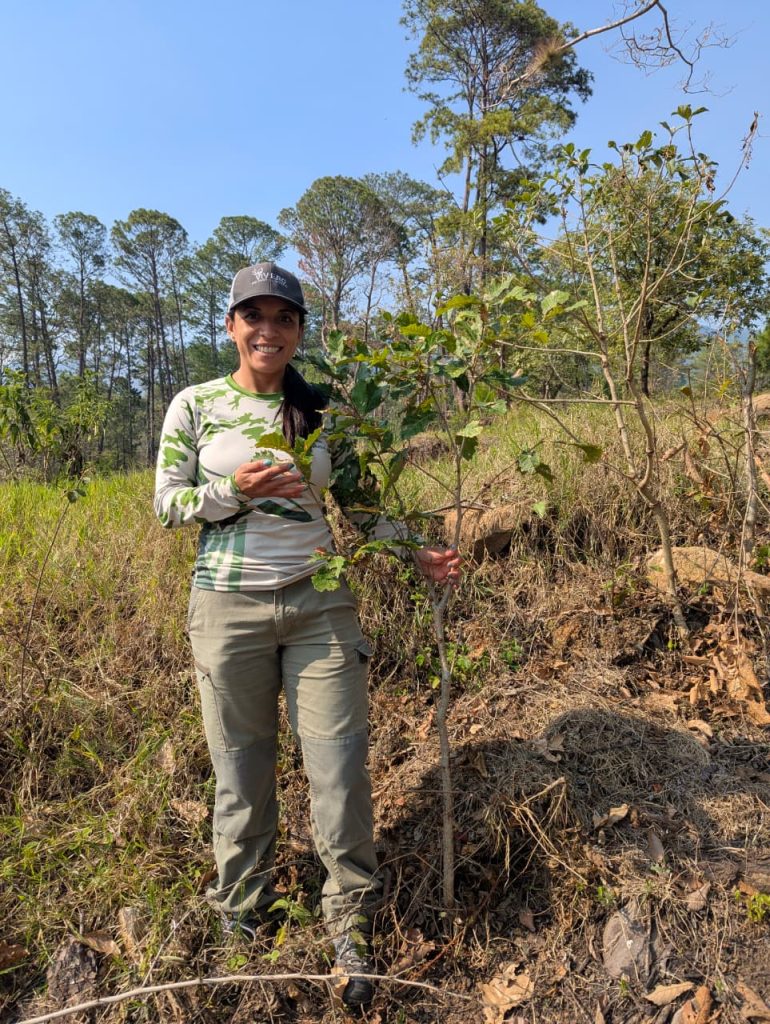
Luz Rodríguez Parga works for Pronatura Sur, a partner of BirdlIfe International.
Learn more about Trillion Trees’ work in the Jovel Valley Basin, Mexico and other projects in our latest ReForest Fund Report.

